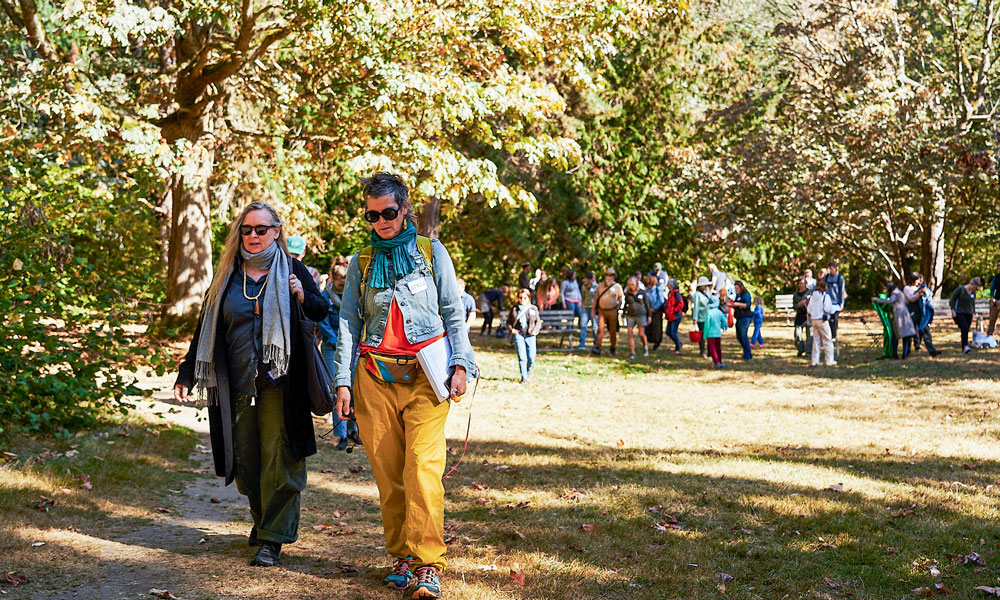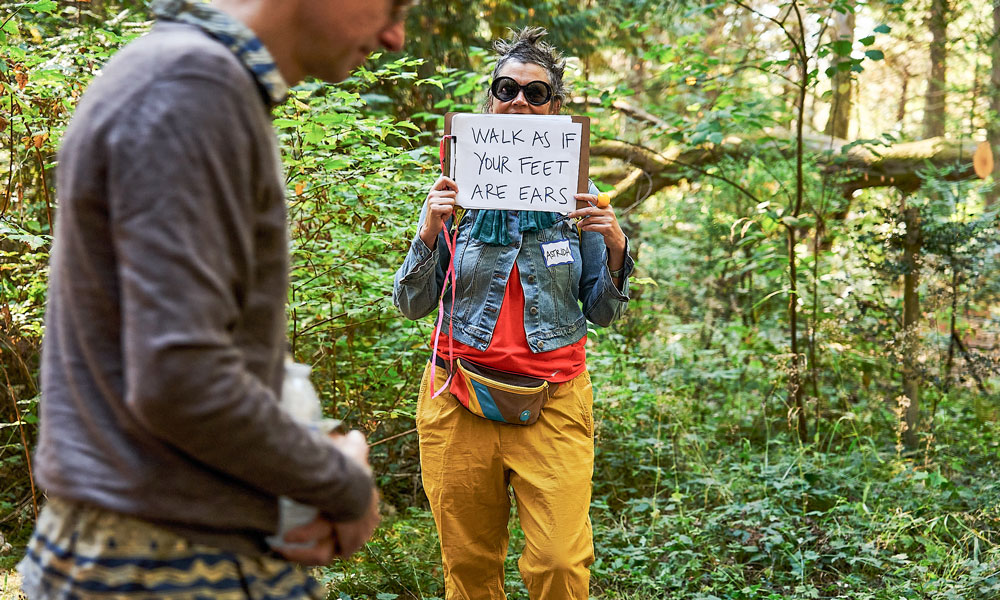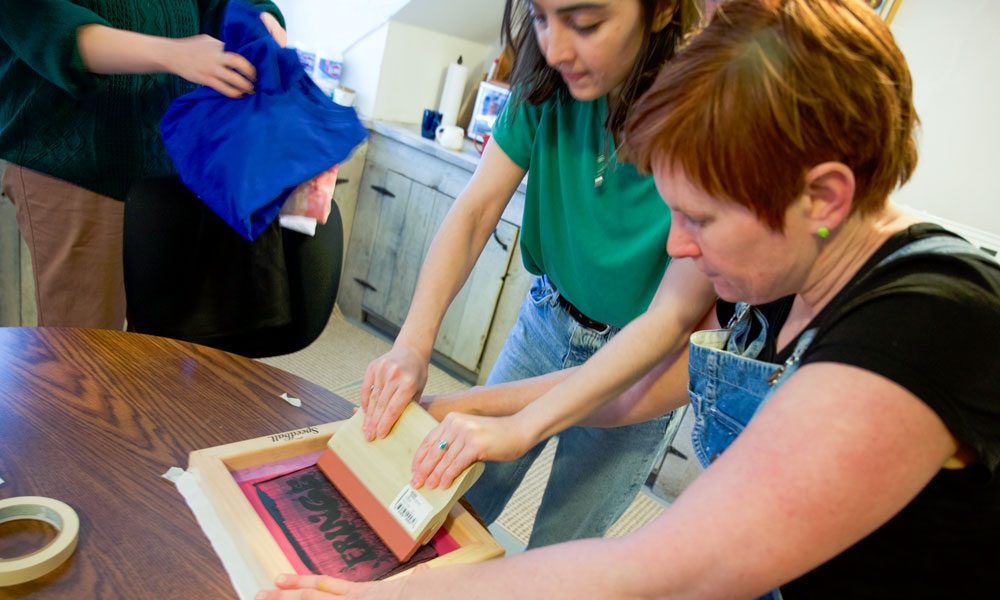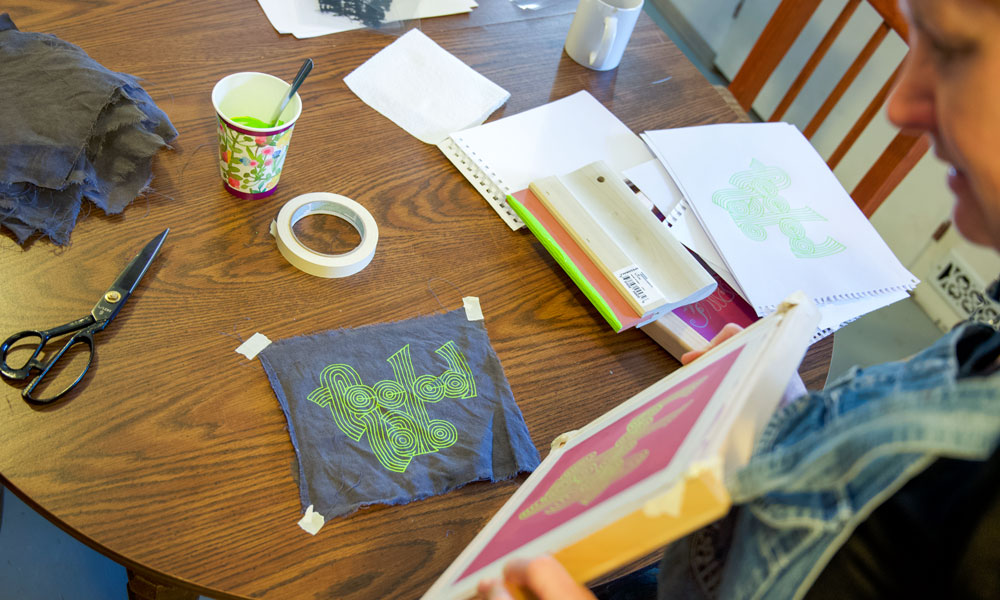
THE REMINDERS ABOUT EARTH’S FUTURE LOOM LARGE in the news: “’Sounding the alarm’: World on track to breach a critical warming threshold in the next five years,” or “Climate paradox: Emission cuts could ‘unmask’ deadly face of climate change, scientists warn.”
However, despite decades of dire warnings full of doom and gloom—invariably meant to shock, scare and drive society into fighting climate change—we’re still warming the Earth at unprecedented levels.
According to the World Meteorological Organisation, the next five years should see new temperature records across the globe. The world is on track to breach the 1.5-degree Celsius warming threshold set out in the 2015 Paris Climate Agreement. Scientists have warned that heating beyond this level will have far-reaching implications for food security, health, water management and the environment.
“There are rising seas, volatile weather, less biodiversity and more contaminants like plastics and PCBs in our environment. The science shows this yet we continue doing what we do. Clearly this isn’t a question of if we had the facts about climate change we would alter our behaviour, because that’s not happening,” explains Associate Professor Dr. Astrida Neimanis, Canada Research Chair in Feminist Environmental Humanities.
“Why aren’t we changing our behaviour? And what is it about our relationship to these issues of climate change that we’re not ready to address, or ready to admit to ourselves?”
Interested in the ways humans relate to nature and how it parallels gender relations, Dr. Neimanis says both topics are questions of power and raise issues of control. “Take, for example, the fact it makes no sense that women make 70 cents compared to a man’s dollar for performing the same job.
“Similarly, we know it makes no sense to pollute the very waters we drink from, but we do it because we’re humans and we’re not rational. We’re motivated by fear, shame, desire and power. We care about the things we care about, which isn’t always rational.
“Both these examples are about power—who has it and who doesn’t. So that’s why we absolutely need humanities scholars to help us think through questions of climate change because we need to understand those complex or irrational human relationships.”
For Dr. Neimanis, the ultimate question may be: “Why aren’t we changing our behaviour? And what is it about our relationship to these issues of climate change that we’re not ready to address, or ready to admit to ourselves?”

The death of a juvenile humpback whale in Seattle in 2016 inspired Dr. Astrida Neimanis (right) and collaborators to develop Care for the Stranded: A Shoreline Walkshop. Attendees joined a forest and shoreline walk comprised of storytelling, conversation, participation and performance. Ultimately, the whale’s tragic death can teach society about the lives of animals, those who care for them, and the entangled futures of humans and oceans. Photo courtesy of Jonathan Vanderweit.
While some problems lie with humans falling back into old habits, Dr. Neimanis points to the constricting structures within larger for-profit capitalist systems based on the fossil fuel economy. She says these systems work to constrain our choices.
“I’m sure many people would prefer not to buy their vegetables packaged in plastic, but that’s the choice we often get at the supermarket. I’m sure most people would prefer to drive a non-gasoline car, but not many can afford that. We often think we’d like to do it a different way, but we can’t.”
She adds, “I think that’s why some people—young people in particular—feel quite despondent about climate change, because it seems daunting to try and defy those entrenched structures to make a difference.”
That’s where the associate professor sees the value in approaching the climate change challenge in smaller, community-level settings. Through The FEELed Lab, Dr. Neimanis aims to help diverse groups develop new habits for understanding and interacting with the world.
“Whether it’s a workshop or classroom setting, how can we rehearse and practice living differently on really small scales and develop distinct muscles to engage and see the world in new ways? And how do we move from always taking from nature to being in a more reciprocal relationship with the world that sustains us?”

Care for the Stranded: A Shoreline Walkshop, a project of the Learning Endings collaboration. Lincoln Park, September 24, 2022. Photo courtesy of Jonathan Vanderweit.
Dr. Neimanis explores this through social infrastructure, or, as she explains it, “how we create infrastructure to gather people together to relate in different ways that will be valuable in addressing and mitigating climate change.” The research activities are usually low stakes, fun, supportive and sometimes a bit awkward.
“When we’re slightly uncomfortable, we’re open to learning something new or trying something different. Our aspirations for power and mastery is partly why we’re in this mess, so we need to practice being awkward and not knowing, and being okay with that.”
In one project, the research team brought together community members who have various experiences with social exclusion to think about environmental education.
“Gathering together outside, with snacks and tea, we got to know one another better and explored our ideas using creative techniques. It wasn’t just about ‘sharing information’; we shared feelings and experiences, and stretched our understanding of what an ‘environmental issue’ actually is.”
For Dr. Neimanis and the group, it meant “thinking about these intense problems in a welcoming and joyful space. And that may sound like a small thing, but in my work, I think that’s everything.

FEELed Lab members at a ‘craft-a-stophe’ event, where recycled fabrics were used to do silkscreening. The day also involved readings of tar sands-related poetry.

During the readings, attendees were asked to consider the lines that connect and divide society to/from one another, as well as the (pipe)lines that facilitate our dependence on oil.
“We need these community infrastructures to explore difficult problems in a way that also facilitates togetherness, because we need to sustain our everyday lives through joy and pleasurable activities, while also preparing ourselves for the changes that are coming.”
Dr. Neimanis also collaborates with artists and poets to create artwork that provides a new way of looking at our environmental questions in order to understand them differently. Ultimately, Dr. Neimanis believes society must re-examine how it uses and supports nature to adequately address climate change impacts.
“This is a human-caused problem, so unless we understand why we treat nature the way we do, nothing is ever going to change.
“Techno-fixing our way out of it isn’t going to solve the problem; we simply can’t shoot something into the sky to make it rain, or fire-proof our cities, without addressing the structures of power and habits of thinking and living together that got us here, because 50 years down the road we’ll be in the same situation.
“Nothing will make a difference unless we change our relationship with nature and each other.”